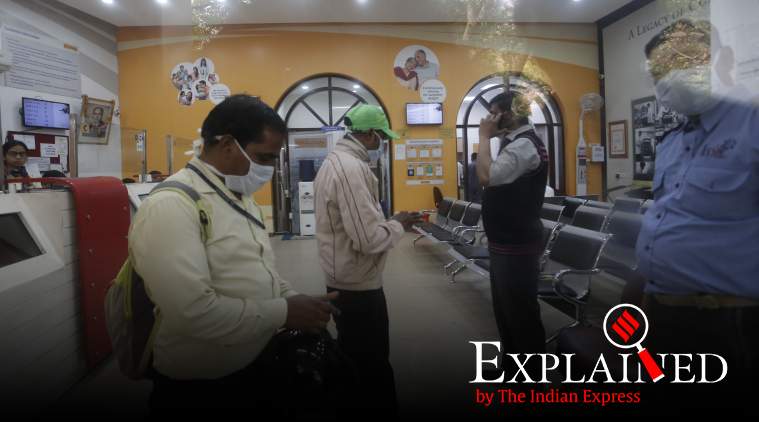Coronavirus testing in India: What government guidelines say
The strategy document is based on the consideration that India has witnessed only imported cases of the illness, with limited local transmission to immediate contacts.

The Ministry of Health and Family Welfare has released guidelines for COVID-19 testing in the country. Prepared by the Indian Council of Medical Research (ICMR), Department of Health Research, the strategy document is based on the consideration that India has witnessed only imported cases of the illness, with limited local transmission to immediate contacts.
“If community transmission is documented, the […] testing strategy will undergo changes to evolve into stage appropriate testing strategy,” it notes.
According to the document, testing for COVID-19 will be offered free of cost for all individuals in need of it.
Guidelines for testing coronavirus patients in India:
All asymptomatic people, meaning those who do not show COVID-19 symptoms (fever, cough, difficulty in breathing, etc.), who have travelled abroad:
– should stay in home quarantine for 14 days
– need to be tested only if they become symptomatic (show above symptoms)
– if they test positive for COVID-19, then they should be isolated and treated as per standard protocol.
Those who have been in contact with laboratory-confirmed positive COVID-19 cases:
– should stay in home quarantine for 14 days
– should be tested only if they become symptomatic
– if they test positive for COVID-19, then they should be isolated and treated as per standard protocol
Health care workers managing respiratory distress/Severe Acute Respiratory illness should be tested when they are symptomatic.
📢 Express Explained is now on Telegram. Click here to join our channel (@ieexplained) and stay updated with the latest
Guidelines for private sector laboratories undertaking COVID-19 testing
The ICMR has appealed to private laboratories to provide COVID-19 diagnosis free of cost.
A laboratory test has to be offered only when prescribed by a qualified physician as per ICMR guidance for testing. The latest version of guidance must be followed.
The ICMR will share the SOPs for laboratory testing and provide positive controls for establishing the test as soon as the concerned private laboratory has procured the primers, probes and reagents as per respective SOPs. Adoption of commercial kits for testing should be based on validations conducted by ICMR-National Institute of Virology (NIV), Pune.
Don’t miss from Explained | When to test and whom
Appropriate biosafety and biosecurity precautions should be ensured while collecting samples from a suspect patient. Alternatively, a disease-specific separate collection site may be created.
All private testing laboratories must ensure immediate/real-time reporting to the state officials of IDSP (Integrated Disease Surveillance program of the Government of India) and ICMR headquarters for timely initiation of contact tracing and research activities.
What the guidelines aim to do
– Contain the spread of infection/community transmission of COVID-19 by improving access
– Meet the inclusion criteria of COVID-19 testing by providing individuals with reliable diagnostics free of cost
– Avoid indiscriminate testing, reduce panic, optimally utilise resources, and scale up facilities for testing.